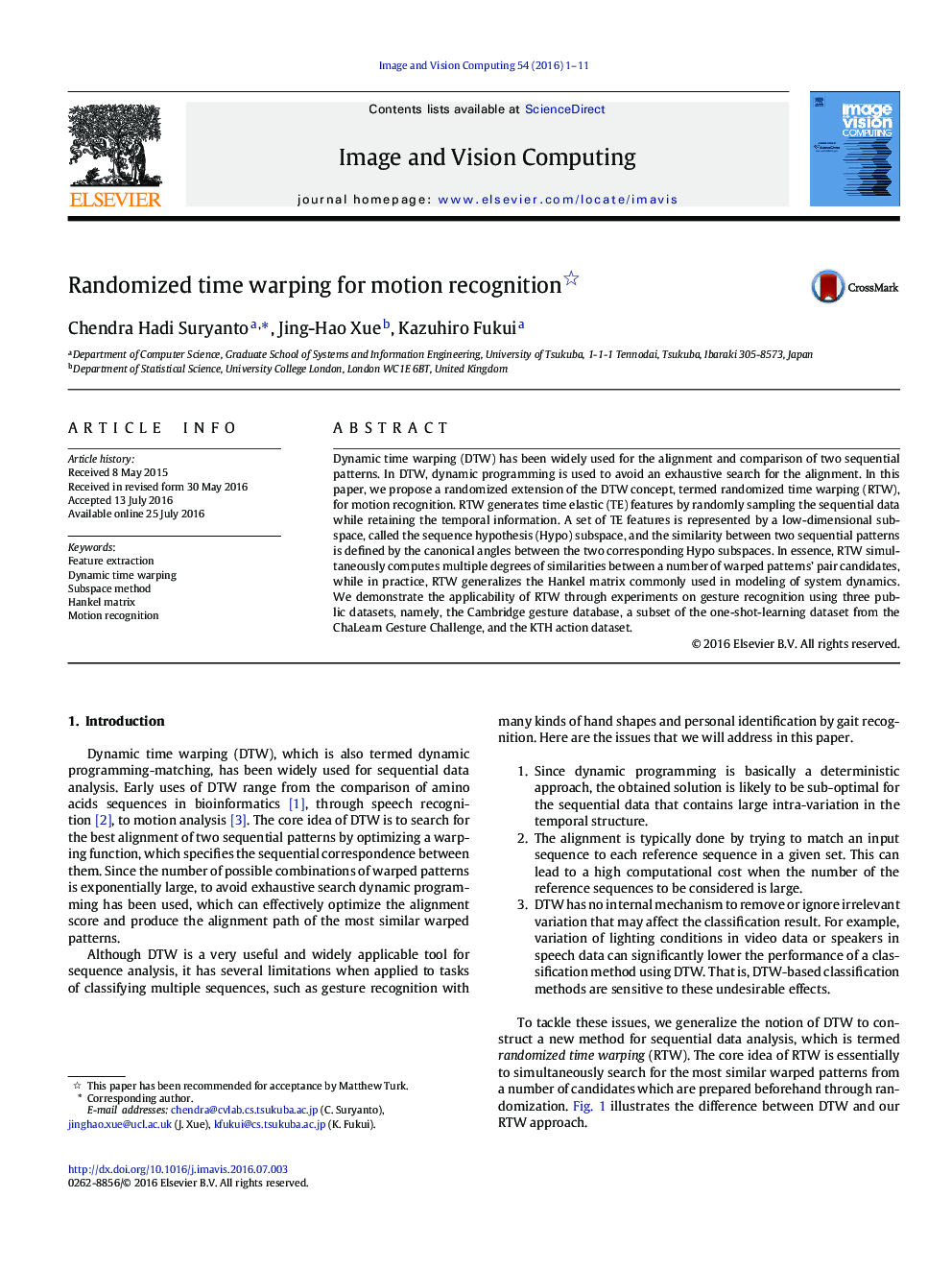| کد مقاله | کد نشریه | سال انتشار | مقاله انگلیسی | نسخه تمام متن |
|---|---|---|---|---|
| 526698 | 869200 | 2016 | 11 صفحه PDF | دانلود رایگان |
• Tackle issues in dynamic time warping by time elastic features and subspace method
• At conceptual level, extend DTW by multiple similarity measurements
• In implementation, generalize the Hankel matrix
• Able to generate rich temporal variation from one sample
• Easy to implement yet outperform conventional methods
Dynamic time warping (DTW) has been widely used for the alignment and comparison of two sequential patterns. In DTW, dynamic programming is used to avoid an exhaustive search for the alignment. In this paper, we propose a randomized extension of the DTW concept, termed randomized time warping (RTW), for motion recognition. RTW generates time elastic (TE) features by randomly sampling the sequential data while retaining the temporal information. A set of TE features is represented by a low-dimensional subspace, called the sequence hypothesis (Hypo) subspace, and the similarity between two sequential patterns is defined by the canonical angles between the two corresponding Hypo subspaces. In essence, RTW simultaneously computes multiple degrees of similarities between a number of warped patterns' pair candidates, while in practice, RTW generalizes the Hankel matrix commonly used in modeling of system dynamics. We demonstrate the applicability of RTW through experiments on gesture recognition using three public datasets, namely, the Cambridge gesture database, a subset of the one-shot-learning dataset from the ChaLearn Gesture Challenge, and the KTH action dataset.
Graphical AbstractFigure optionsDownload high-quality image (252 K)Download as PowerPoint slide
Journal: Image and Vision Computing - Volume 54, October 2016, Pages 1–11
